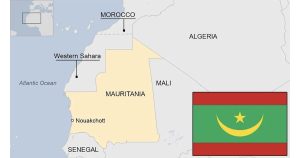Today marks the 25th Anniversary of former Iraqi dictator Saddam Hussein’s deadly chemical attack on the Kurdish town of Halabja. On 16 March 1988, Iraqi government helicopters and warplanes dropped mustard gas and nerve agents on Halabja that caused for the deaths of at least 5000 civilians and injuries to an estimated 10,000 more. It was one of the most infamous massacres of Saddam Hussein’s “Anfal” campaign conducted between 1986 and 1989 against the predominantly Kurdish population of northern Iraq. The Anfal Campaign involved forced displacement, aerial bombardment, chemical attacks, internment camps, torture, extra-judicial killings, and mass graves.
Statement by Niccolo’ Figa-Talamanca, Secretary-General of No Peace Without Justice:
“While the world remembers Halabja tragic legacy , No Peace Without Justice is honoured to stand side-by-side with the victims of this horrific massacre which was part of a wide-scale campaign designed by the Ba’athi regime to systematically exterminate Kurds from Iraq. We believe that the first step to redress for the victims and survivors goes through the acknowledgement and recognition that their suffering is not the result of a natural calamity, but a deliberate policy to gain and maintain power through widespread and systematic attacks against a
civilian population by the former Regime.
“In 2008 the Iraqi Presidential Council approved Resolution 26 ratifying a parliamentary resolution condemning the Anfal operations implemented by Iraqi forces under the reign of Saddam Hussein as an act of genocide against the Kurdish people, followed by a similar rule by the Supreme Iraqi Criminal Tribunal in 2010. Five years later, the movement to recognize the exactions perpetrated against the Iraqi Kurds as genocide is finally gathering steam in the international arena. Several countries through their parliaments have already embarked on the initiative, including Canada, Norway, Sweden and ultimately the United Kingdom.
“We call upon all states, but also the EU and the UN, to take similar steps to complement and reinforce these important signals of political recognition. We owe victims and survivors, and we owe the future of Kurdistan, that these events and responsibilities be formally, legally and universally acknowledged, so that a shared history of the past can be a strong shield against repetition of such atrocities, and so that too often used phrase “never again” can be given real meaning.
“We also call upon the Iraqi government to join the International Criminal Court (ICC) to demonstrate its clear commitment to justice and the rule of law as a pre-condition for sustainable peace and mark a further significant step forward in the international community’s efforts to put an end to impunity for the most serious crimes under international law and for the defence of fundamental human rights”.
For further information, contact Nicola Giovannini on ngiovannini@npwj.org or +32-(0)2-548-3915.



